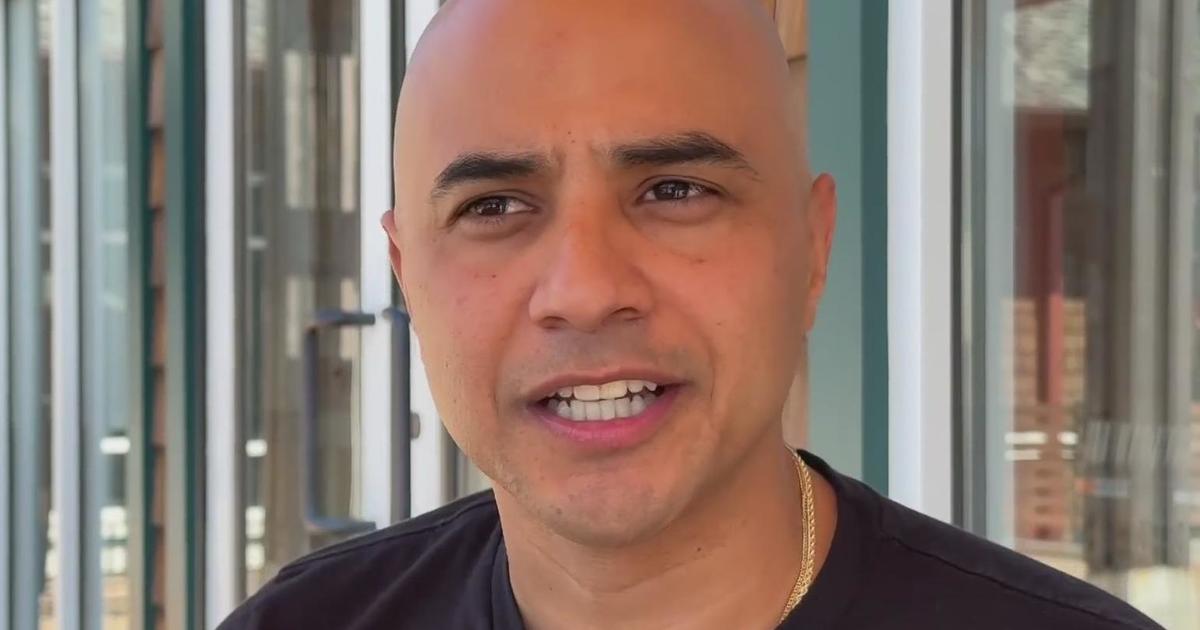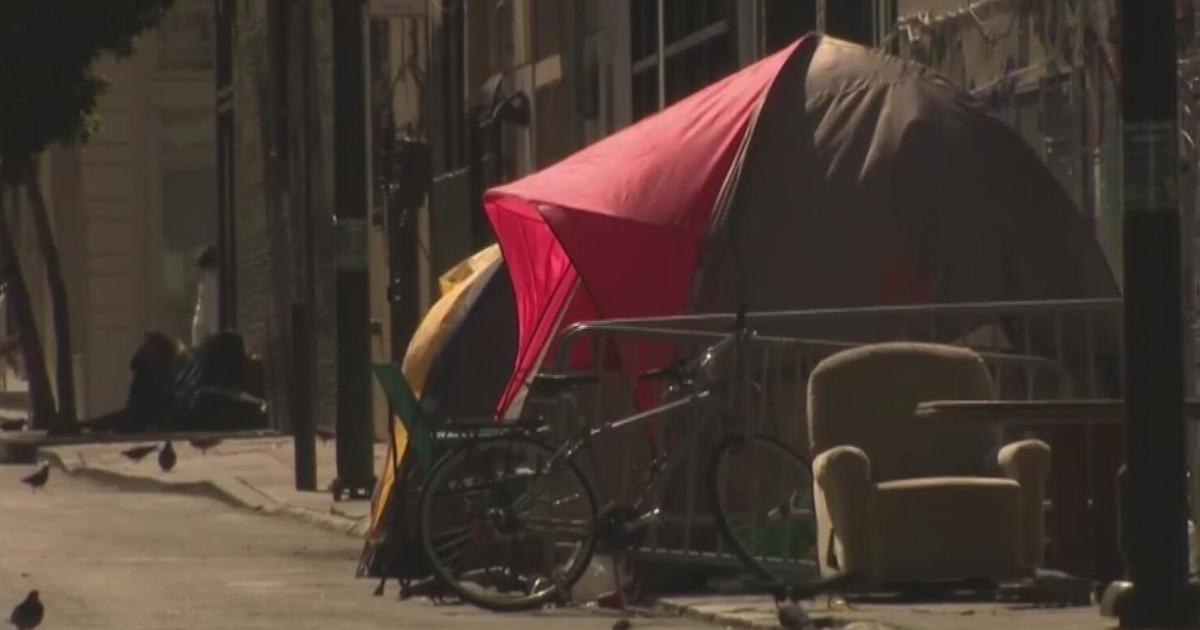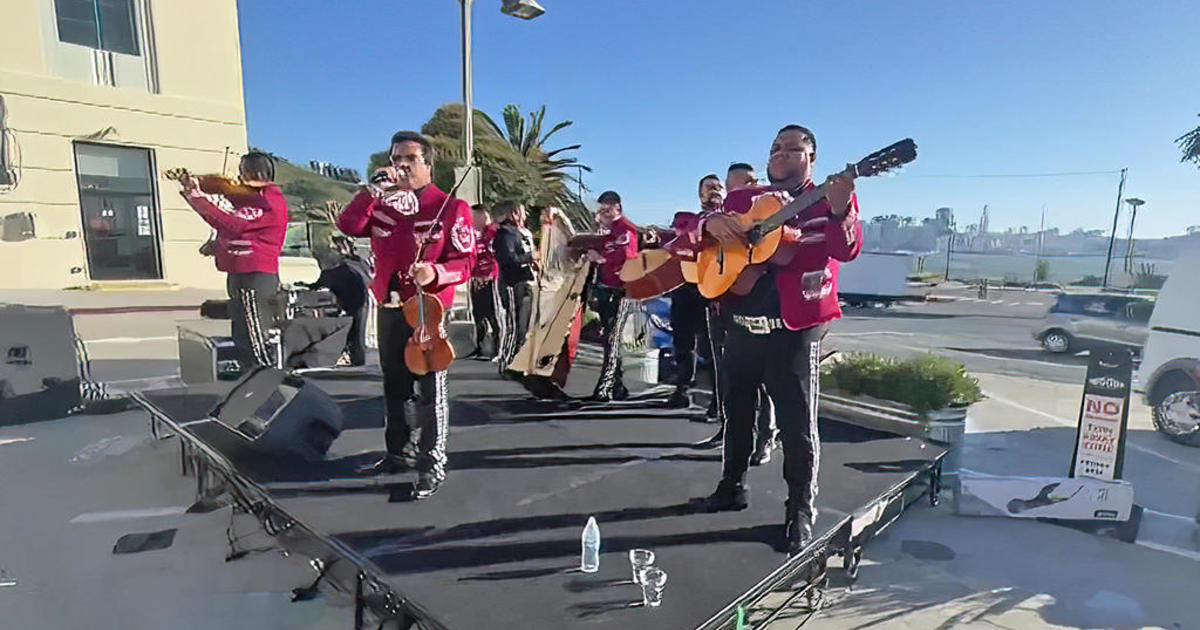Court Orders Immediate Release Or Transfer 1,700 San Quentin Prison Inmates Over COVID Outbreak
SAN FRANCISCO (CBS SF) -- A state appeals court ordered San Quentin State Prison on Tuesday to immediately cut its inmate population by half, which would require transferring or releasing about 1,700 inmates, citing the state's inability to manage a deadly COVID-19 outbreak at the prison.
The First District Court of Appeal in San Francisco ruled that the California Department of Corrections and Rehabilitation (CDCR) and San Quentin Prison Acting Warden Ron Broomfield "have acted with deliberate indifference and relief is warranted," Presiding Justice J. Anthony Kline wrote in the court opinion.
The ruling stemmed from a case involving 64-year-old Ivan Von Staich, who along with his 65-year-old cellmate, tested positive for the virus in July. Lawyers for Von Staich, who was convicted of murder in Southern California in 1983 and sentenced to life in prison with the possibility of parole, said he had a lung condition that made him vulnerable to contracting COVID-19, the sometimes deadly illness caused by the virus.
The appeals court ordered that Von Staich, who was recommended to be released by a parole board last week, be released or transferred to another prison.
In August, the same appeals court ordered CDCR to justify its refusal to remove inmates with heightened COVID-19 risk factors from the 150-year-old prison.
"I think this is a very good day, this is a day of victory in terms of trying to fight this disease and helping people that don't really have a voice in the way things are done," said UC Hastings Professor of Law Hadar Aviram.
Aviram filed arguments supporting the inmates.
"San Quentin is an antiquated, dilapidated facility that has no ventilation and no room for people, and when this all started, it was still overcrowded to the tune of about 108%," she added.
There have been more than 2,200 confirmed cases of COVID-19 among San Quentin inmates and 28 inmate deaths. In addition, nearly 300 San Quentin staff members have been infected, resulting in one death. Tuesday's court ruling called the outbreak "the worst epidemiological disaster in California correctional history."
The appeals court ordered CDCR to reduce the prison population to 50% of what it was in June, which was about 3,400 inmates. The reduction was originally recommended in an urgent memo to prison officials in June by public health experts after visiting the facility during the height of the outbreak.
That review cited the unique architecture and age of San Quentin, its "exceedingly poor ventilation, extraordinarily close living quarters, and inadequate sanitation," as well as some 1,400 inmates having at least one COVID-19 risk factor, such as age or infirmity.
Tuesday's court ruling said the CDCR was in violation of the Eighth Amendment, which prohibits cruel and unusual punishment.
"The Eighth Amendment violation currently existing due to insufficient space for the necessary physical distancing will continue unless and until the population at San Quentin can be reduced to the 50 percent level," the ruling says.
The appeals court said removal of inmates by either release on parole or transfer to another prison was necessary to reduce the population to no more than 1,775 inmates. Releases could also be granted to inmates who have been convicted of violent offenses, the order said.
"If necessary to achieve this reduction, respondents are ordered to revise their expedited release programs to include inmates over age 60, who have served at least 25 years of their sentences and are eligible for parole, such as life prisoners eligible for parole and second or third strike prisoners, even if such prisoners are serving a sentence for a violent offense," the order stated.
CDCR spokesperson Dana Simas told KPIX 5 in an email that "we respectfully disagree with the court's determination, as CDCR has taken extensive actions to respond to the COVID-19 pandemic."
"Since March, the department has released more than 21,000 persons, resulting in the lowest prison population in decades. Additionally, we have implemented response and mitigation efforts across the system," said Simas. "As of today, CDCR's COVID-19 cases are the lowest they have been since May (474 cases reported today, and over 14,000 resolved), with San Quentin recording only one new case among the incarcerated population in nearly a month."
The outbreak of COVID-19 at San Quentin was set off by a transfer of prison inmates in May from the California Institution for Men (CIM) in Chino as part of an inmate reduction response to the COVID-19 outbreak there. San Quentin officials later acknowledged the transferred inmates were not tested for the coronavirus upon arrival to San Quentin, and for days used the same showers and ate in the same dining hall as other inmates.
On Tuesday, CIM reported a 24th inmate had died on Oct. 15 at an outside hospital from what appear to be complications related to COVID-19. CIM and San Quentin account for a total of 52 out of the 71 CDCR inmate deaths from the coronavirus.



